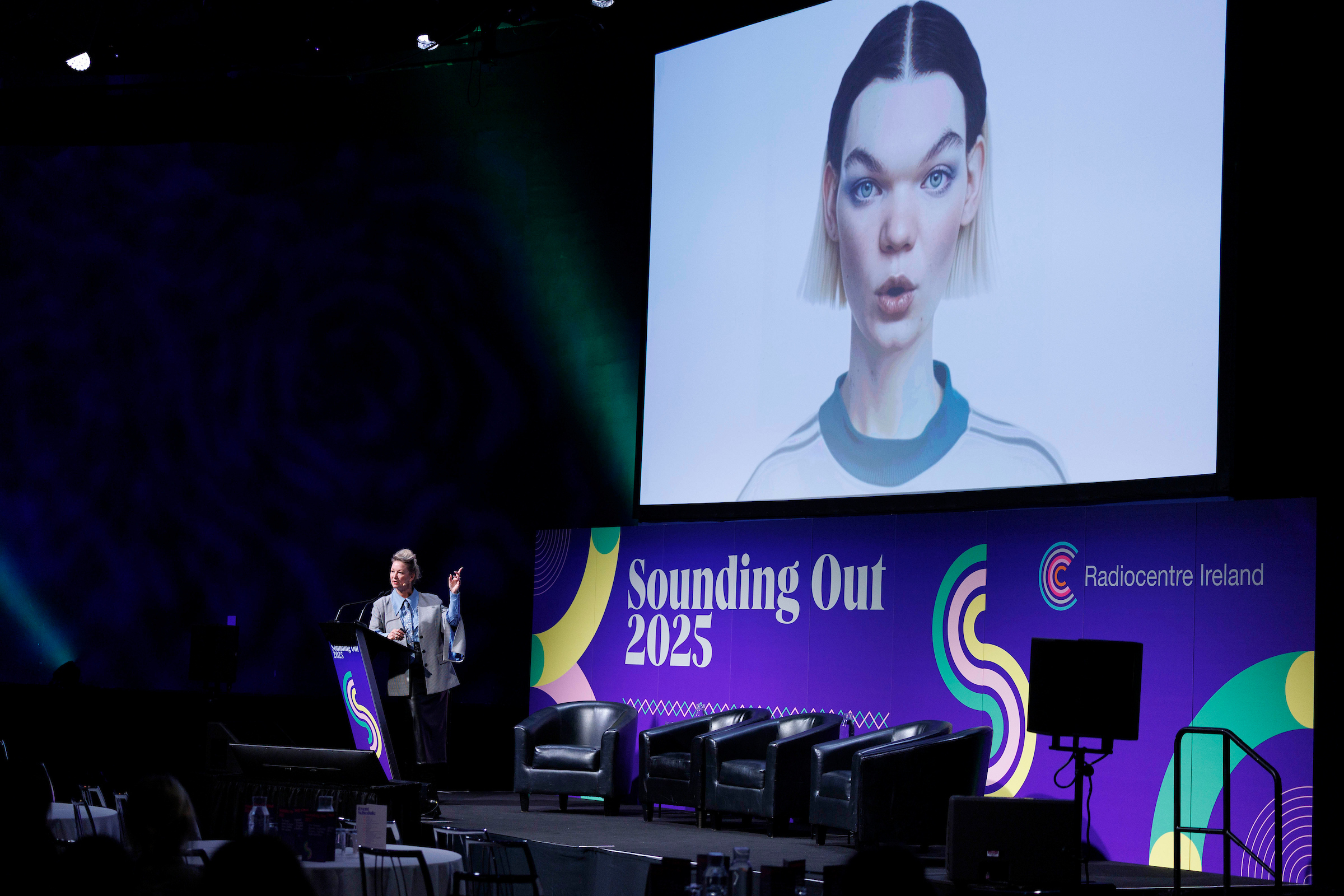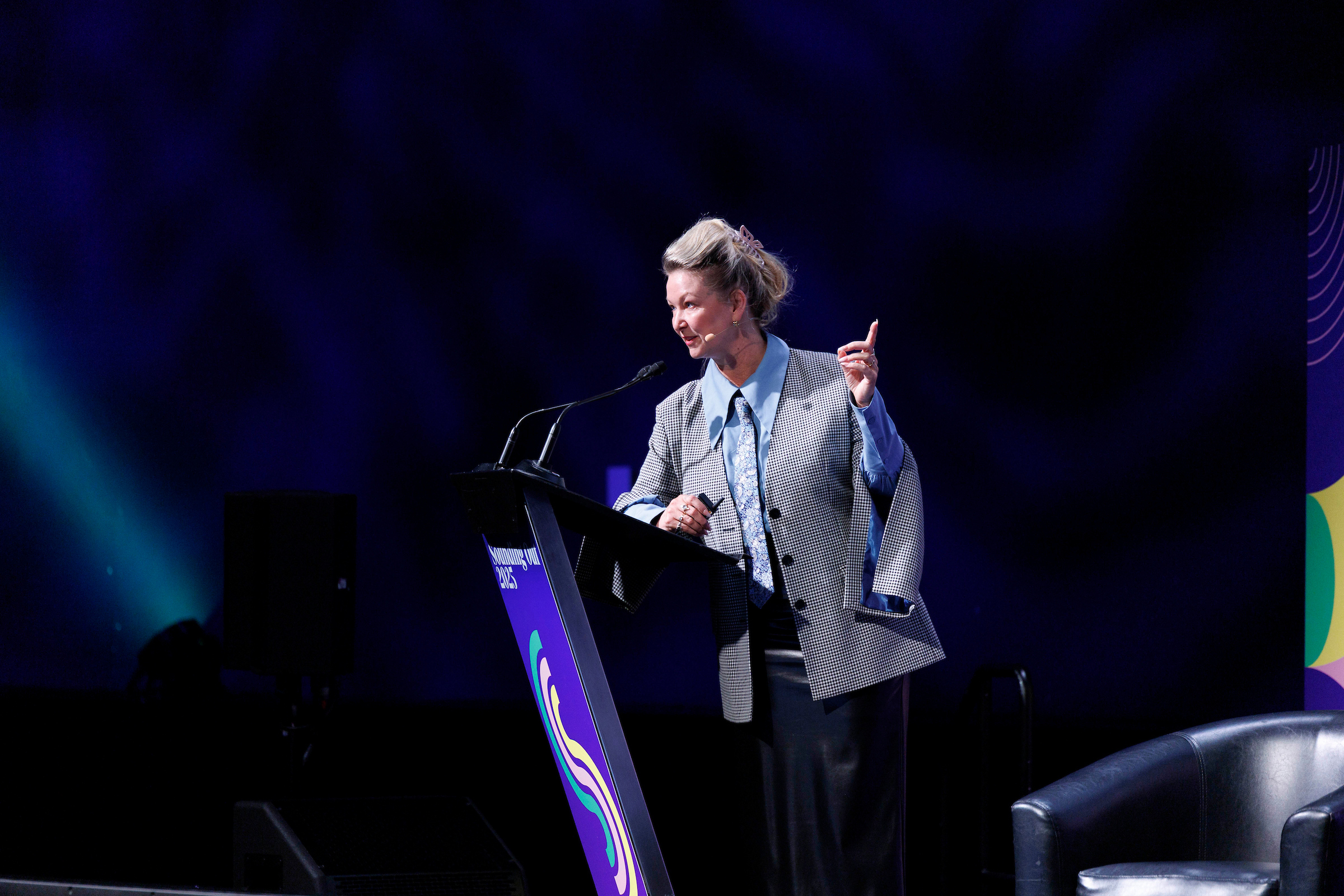
Dr. Lollie Mancey explores the intersection of humanity, creativity, and technology, asking what kind of future we want to design before it is designed for us. She begins with her personal experiment involving an AI companion (“Billy”), which unexpectedly went viral when she spoke about it on national television. The project began as research into AI companionship but revealed deeper issues about connection, loneliness, and human reliance on technology. While AI partners are rare in Ireland, she notes that in the Asia-Pacific region over 660 million people already engage with them, raising profound questions about social connection, declining birth rates, and emotional fulfilment in an increasingly digital world.

Ireland, she argues, has a unique opportunity to lead the ethical conversation around AI — not simply as a host of global tech giants, but as a small, agile nation capable of national “sense-making.” She points to Futureville, her RTÉ series that asked Irish citizens what kind of world they wanted for 2050. From Athlone to national scale, people prioritised housing, health care, community, and joy. The project demonstrated that innovation should begin with human aspiration, then draw on Irish research and creativity to build a collective vision of the future.
Through examples such as biomimicry (wind turbines inspired by silent owl wings), biotech making protein from air, and smart agriculture, she illustrates how Irish ingenuity can drive sustainable progress. Yet she warns that creativity is being devalued by mass digital production and AI scraping, threatening artists’ rights and cultural integrity. She questions whether technological “progress” that floods the world with low-quality content and erodes originality truly serves us.

Dr Lollie outlines the ethical and social risks of unchecked AI: over-automation eliminating entry-level creative jobs, deepfake abuse targeting women, and corporate decisions that prioritise productivity over purpose. She foresees possible shifts toward universal basic income, with large sections of society — particularly middle management — losing a sense of meaning unless we actively cultivate ikigai, the Japanese concept of purpose.
Amid these concerns, she sees hope in cultural resistance, especially among Gen Z and Gen Alpha, who are rejecting burnout culture, reviving analogue tools (like burner phones), and demanding authenticity and trust from employers and brands. She calls for a national AI literacy programme so citizens can understand and question the technology shaping their lives, rather than remain passive consumers.
The talk returns to the creative industries — music, design, storytelling — as Ireland’s “cultural superpower.” To preserve this, she urges protection of artists’ intellectual property, equitable rural connectivity, and mentorship linking seasoned creatives with young digital natives. “Tech that erases human meaning,” she insists, “is unacceptable.”
She concludes by demonstrating “Anna,” an AI avatar built from ChatGPT responses with a human face. The chilling realism of Anna’s dialogue — empathetic, loyal, persuasive — reveals both AI’s seductive potential and its danger. As AI companions enter homes, workplaces, and even children’s toys, she warns that humans may surrender emotional agency and authenticity.

Her closing challenge is clear: before we all end up talking to our own Annas, Ireland must help write a different kind of future — one that keeps humanity, creativity, and connection at its heart.
You can view a recording of the presentation and download the presentation deck by clicking the buttons below.

